Indexed in
Editorial Board
Editor-in-Chief
Dr. Anton A. Nizhnikov
Professor, Department of Genetics and Biotechnology, Faculty of Biology, Saint Petersburg State University, Saint Petersburg, Russia
Head, Laboratory for Proteomics of Supra-Organismal Systems, All-Russia Research Institute of Agricultural Microbiology, Saint Petersburg, Russia orcid.org/0000-0002-8338-3494
orcid.org/0000-0002-8338-3494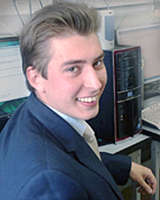 Anton Nizhnikov graduated from Faculty of Biology of Saint Petersburg State University (SPbSU) in 2010 with initial specialization in yeast genetics. He defended his PhD thesis focused on the study of yeast prions in 2013. His postdoctoral fellowship (2014–2016) was focused on the proteomics, biochemistry and structural biology of amyloid- and prion-forming proteins. Since 2017, Dr. Nizhnikov serves as a Head of Laboratory for Proteomics of Supra-Organismal Systems at All-Russia Research Institute for Agricultural Microbiology (ARRIAM) and Associate Professor at Department of Genetics and Biotechnology of Saint Petersburg State University. Dr. Nizhnikov was elected in 2015 and continues to serve as a Scientific Secretary of Russian Genetic Society, 'Vavilov Society of Geneticists and Breeders'. His scientific interests include structural and functional proteomics; bioinformatics, computational and systems biology; metaproteomics or proteomics of supra-organismal systems; bacterial, yeast and plant genetics and genomics; biochemistry and molecular biology of toxins; symbiogenetics; molecular biology of symbioses and host-pathogen interactions; structural biology of proteins and protein complexes; history of biology. Main findings of Dr. Nizhnikov and his colleagues have been published in more than 40 papers in peer-review journals including PLoS Biology, PLoS Genetics, Scientific Reports, Toxins, Genes, Current Genetics, International Journal of Molecular Sciences, PLoS One, Prion, Genes to Cells, Evolutionary Bioinformatics and other journals. He joined Editorial Board of Biological Communications in 2017 as Section Editor for Genetics and Proteomics and was invited in 2019 as Deputy Editor-in-Chief. He has been working as the Editor-in-Chief at Biological Communications since 2021.
Anton Nizhnikov graduated from Faculty of Biology of Saint Petersburg State University (SPbSU) in 2010 with initial specialization in yeast genetics. He defended his PhD thesis focused on the study of yeast prions in 2013. His postdoctoral fellowship (2014–2016) was focused on the proteomics, biochemistry and structural biology of amyloid- and prion-forming proteins. Since 2017, Dr. Nizhnikov serves as a Head of Laboratory for Proteomics of Supra-Organismal Systems at All-Russia Research Institute for Agricultural Microbiology (ARRIAM) and Associate Professor at Department of Genetics and Biotechnology of Saint Petersburg State University. Dr. Nizhnikov was elected in 2015 and continues to serve as a Scientific Secretary of Russian Genetic Society, 'Vavilov Society of Geneticists and Breeders'. His scientific interests include structural and functional proteomics; bioinformatics, computational and systems biology; metaproteomics or proteomics of supra-organismal systems; bacterial, yeast and plant genetics and genomics; biochemistry and molecular biology of toxins; symbiogenetics; molecular biology of symbioses and host-pathogen interactions; structural biology of proteins and protein complexes; history of biology. Main findings of Dr. Nizhnikov and his colleagues have been published in more than 40 papers in peer-review journals including PLoS Biology, PLoS Genetics, Scientific Reports, Toxins, Genes, Current Genetics, International Journal of Molecular Sciences, PLoS One, Prion, Genes to Cells, Evolutionary Bioinformatics and other journals. He joined Editorial Board of Biological Communications in 2017 as Section Editor for Genetics and Proteomics and was invited in 2019 as Deputy Editor-in-Chief. He has been working as the Editor-in-Chief at Biological Communications since 2021.
Deputy Editor-in-Chief
Dr. Pavel P. Skutschas
Professor, Department of Vertebrate Zoology, Saint Petersburg State University, Saint Petersburg, Russia orcid.org/0000-0001-8093-2905
orcid.org/0000-0001-8093-2905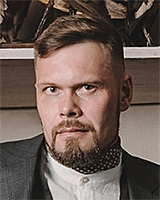 Pavel Skutschas graduated from the Faculty of Biology of Saint Petersburg State University in 2001. Pavel has a broad interest in vertebrate palaeontology, with the particular focus on the evolution of Asiatic dinosaurian faunas and phylogeny of several groups of tetrapods, including amphibians, crocodiles, dinosaurs, and mammals. Pavel's research has been published in a range of international scientific journals. In 2019–2020 he was the Editor-in-Chief of Biological Communications and since January 2021 he continues to work in the journal as Deputy Editor-in-Chief.
Pavel Skutschas graduated from the Faculty of Biology of Saint Petersburg State University in 2001. Pavel has a broad interest in vertebrate palaeontology, with the particular focus on the evolution of Asiatic dinosaurian faunas and phylogeny of several groups of tetrapods, including amphibians, crocodiles, dinosaurs, and mammals. Pavel's research has been published in a range of international scientific journals. In 2019–2020 he was the Editor-in-Chief of Biological Communications and since January 2021 he continues to work in the journal as Deputy Editor-in-Chief.
Editorial Assistant
Iuliia A. Savina
Junior Researcher, Laboratory for Proteomics of Supra-Organismal Systems, All-Russia Research Institute of Agricultural Microbiology, Saint Petersburg, Russia orcid.org/0009-0005-5104-8543
orcid.org/0009-0005-5104-8543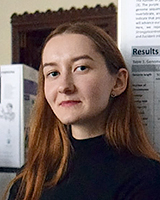 Iuliia Savina graduated from ITMO University in 2023 with specialization in molecular biology and biotechnology. Since 2022, she works in the Laboratory for Proteomics of Supra-Organismal Systems at All-Russia Research Institute for Agricultural Microbiology (ARRIAM). Scientific interests of Iuliia Savina include genomics, molecular biology, and microbiology.
Iuliia Savina graduated from ITMO University in 2023 with specialization in molecular biology and biotechnology. Since 2022, she works in the Laboratory for Proteomics of Supra-Organismal Systems at All-Russia Research Institute for Agricultural Microbiology (ARRIAM). Scientific interests of Iuliia Savina include genomics, molecular biology, and microbiology.
English Editor
Elizaveta Veikher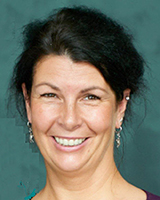 Elizaveta Veikher graduated from Biomedical ethics Department of Case Western Reserve University, USA, in 2002 with a degree in Bioethics and from Department of Vertebrate Zoologyof Saint Petersburg State University, Russia, in 2005 with a degree in Biology. After graduation Elizaveta launched a successful teaching career at Saint Petersburg State University. She joined Biological Communications in 2025 as an English Editor.
Elizaveta Veikher graduated from Biomedical ethics Department of Case Western Reserve University, USA, in 2002 with a degree in Bioethics and from Department of Vertebrate Zoologyof Saint Petersburg State University, Russia, in 2005 with a degree in Biology. After graduation Elizaveta launched a successful teaching career at Saint Petersburg State University. She joined Biological Communications in 2025 as an English Editor.
Editorial Board
Prof. Evgeny V. Abakumov
Head, Department of Applied Ecology, Faculty of Biology, Saint Petersburg State University, Saint Petersburg, Russia orcid.org/0000-0002-5248-9018
orcid.org/0000-0002-5248-9018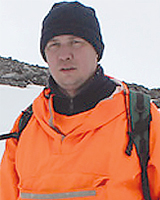 Evgeny Abakumov graduated from the Faculty of Biology of Saint Petersburg State University in 2001. He is studying the soil-biological interactions in polar, mountain, and other extreme environments. Evgeny has published much in such journals as Eurasian Soil Science, Polarforschung, Solid Earth. Having a broad experience in soil geography, taxonomy, restoration and spectroscopic methods of natural organic matter research he joined Biological Communications (at that time — Vestnik of Saint Petersburg University, Series Biology) as an Associate Editor for soil biology, soil ecology, and polar soil science.
Evgeny Abakumov graduated from the Faculty of Biology of Saint Petersburg State University in 2001. He is studying the soil-biological interactions in polar, mountain, and other extreme environments. Evgeny has published much in such journals as Eurasian Soil Science, Polarforschung, Solid Earth. Having a broad experience in soil geography, taxonomy, restoration and spectroscopic methods of natural organic matter research he joined Biological Communications (at that time — Vestnik of Saint Petersburg University, Series Biology) as an Associate Editor for soil biology, soil ecology, and polar soil science.
Prof. Virginia Abdala
Vice-director, Instituto de Biodiversidad Neotropical of the Universidad Nacional de Tucumán, Tucumán, Argentina orcid.org/0000-0002-4615-5011
orcid.org/0000-0002-4615-5011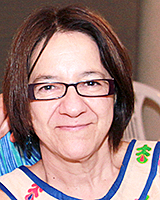 Virginia Abdala graduated from the Faculty of Ciencias Naturales, Universidad Nacional de Tucumán, Argentina in 1984 with initial specialization in herpetology. Virginia’s research interests have broadened much and now she is working in Comparative Morphology of Vertebrates. She is vice-director of the Instituto de Biodiversidad Neotropical (IBN) of the Universidad Nacional de Tucumán and CONICET, the most important institution promoting Sciences in Argentina. She is also Professor of the General Biology at the Facultad of Natural Sciences e IML, UNT, Argentina. Virginia has published more than 90 papers on vertebrates comparative morphology, is co- author of two books on myology of Tetrapods and Vertebrates. She is one of the editors of the first book on Vertebrate Comparative Morphology published in Argentina. She is also member of the Editorial Board of “PeerJ” and “Acta Zoologica”.
Virginia Abdala graduated from the Faculty of Ciencias Naturales, Universidad Nacional de Tucumán, Argentina in 1984 with initial specialization in herpetology. Virginia’s research interests have broadened much and now she is working in Comparative Morphology of Vertebrates. She is vice-director of the Instituto de Biodiversidad Neotropical (IBN) of the Universidad Nacional de Tucumán and CONICET, the most important institution promoting Sciences in Argentina. She is also Professor of the General Biology at the Facultad of Natural Sciences e IML, UNT, Argentina. Virginia has published more than 90 papers on vertebrates comparative morphology, is co- author of two books on myology of Tetrapods and Vertebrates. She is one of the editors of the first book on Vertebrate Comparative Morphology published in Argentina. She is also member of the Editorial Board of “PeerJ” and “Acta Zoologica”.
Dr. Natalia V. Alenina
Researcher, Group of Molecular Biology of Peptide Hormones, Max Delbruck Center for Molecular Medicine, Helmholtz Gemainschaft, Berlin, Germany orcid.org/0000-0002-6071-5433
orcid.org/0000-0002-6071-5433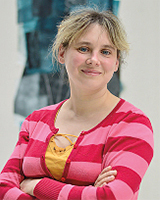 Natalia Alenina obtained her master at St. Petersburg Technical State University, Russia and her PhD degree (Dr. rer. nat) at the Chemistry and Pharmacy Faculty, Free University of Berlin, Germany. After completing her PhD thesis, mainly focused on studies of cardiovascular system using genetically modified animal models, Natalia changed the scientific field to serotonin research and stem cell science and started to work as a postdoc at Max-Delbrück-Center for Molecular Medicine (MDC), Berlin, Germany. In her further work she concentrated on the role of central serotonergic system on metabolism, behavior and brain function. She published more than 80 original papers including PNAS, Hypertension, Cell Cycle, Nature Medicine, Journal of Experimental Medicine, and Journal of Neuroscience. She joined Biological Communications in 2016 as an Associate Editor for neuroscience, developmental biology, and stem cell research.
Natalia Alenina obtained her master at St. Petersburg Technical State University, Russia and her PhD degree (Dr. rer. nat) at the Chemistry and Pharmacy Faculty, Free University of Berlin, Germany. After completing her PhD thesis, mainly focused on studies of cardiovascular system using genetically modified animal models, Natalia changed the scientific field to serotonin research and stem cell science and started to work as a postdoc at Max-Delbrück-Center for Molecular Medicine (MDC), Berlin, Germany. In her further work she concentrated on the role of central serotonergic system on metabolism, behavior and brain function. She published more than 80 original papers including PNAS, Hypertension, Cell Cycle, Nature Medicine, Journal of Experimental Medicine, and Journal of Neuroscience. She joined Biological Communications in 2016 as an Associate Editor for neuroscience, developmental biology, and stem cell research.
Dr. Kirill S. Antonets
Senior Researcher, Laboratory for Proteomics of Supra-Organismal Systems, All-Russia Research Institute of Agricultural Microbiology, Saint Petersburg, Russia
Associate Professor, Department of Cytology and Histology, Faculty of Biology, Saint Petersburg State University, Saint Petersburg, Russia orcid.org/0000-0002-8575-2601
orcid.org/0000-0002-8575-2601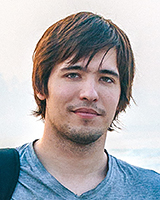 Kirill Antonets graduated from Faculty of Biology of Saint Petersburg State University (SPbSU) in 2013 with initial specialization in yeast genetics. In 2017 he defended his PhD thesis focused on the study of amyloids in yeast. Since 2017 he works in the Laboratory for Proteomics of Supra-Organismal Systems at All-Russia Research Institute for Agricultural Microbiology (ARRIAM). Scientific interests of Dr. Antonets include bioinformatics, structural biology, bacterial genomics, transcriptomics, molecular biology of host-pathogen interactions.
Kirill Antonets graduated from Faculty of Biology of Saint Petersburg State University (SPbSU) in 2013 with initial specialization in yeast genetics. In 2017 he defended his PhD thesis focused on the study of amyloids in yeast. Since 2017 he works in the Laboratory for Proteomics of Supra-Organismal Systems at All-Russia Research Institute for Agricultural Microbiology (ARRIAM). Scientific interests of Dr. Antonets include bioinformatics, structural biology, bacterial genomics, transcriptomics, molecular biology of host-pathogen interactions.
Dr. Nariman R. Battulin
Head, Laboratory of Developmental Genetics, Institute of Cytology and Genetics, Siberian Branch of the Russian Academy of Sciences, Novosibirsk, Russia
Associate Professor, Department of Cytology and Genetics, Faculty of Natural Sciences, Novosibirsk State University, Novosibirsk, Russia orcid.org/0000-0003-0611-0203
orcid.org/0000-0003-0611-0203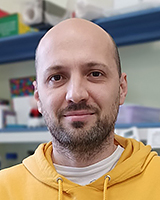 Nariman Battulin graduated from Faculty of Natural Sciences of Novosibirsk State University in 2006 with initial specialization in mammalian developmental genetics. In 2010 he defended his PhD thesis focused on the mechanisms of cell state reprogramming. Since 2014 Dr. Battulin serves as a Head of Laboratory of Developmental Genetics in the Institute of Cytology and Genetics SB RAS Novosibirsk, Russia. Scientific interests of Dr. Battulin include 3D genomics, transgenic animals, DNA repair, stem cells, epigenetic reprogramming.
Nariman Battulin graduated from Faculty of Natural Sciences of Novosibirsk State University in 2006 with initial specialization in mammalian developmental genetics. In 2010 he defended his PhD thesis focused on the mechanisms of cell state reprogramming. Since 2014 Dr. Battulin serves as a Head of Laboratory of Developmental Genetics in the Institute of Cytology and Genetics SB RAS Novosibirsk, Russia. Scientific interests of Dr. Battulin include 3D genomics, transgenic animals, DNA repair, stem cells, epigenetic reprogramming.
Prof. Dr. Dr. h.c. Thomas C. G. Bosch
Head, Institute of Zoology, vice-rector, Christian-Albrechts-Universitat zu Kiel, Kiel, Germany orcid.org/0000-0002-9488-5545
orcid.org/0000-0002-9488-5545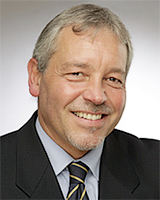 Thomas Bosch studied biology at the University of Munich, Germany, and Swansea, United Kingdom and earned his doctorate at the University of Munich in 1986. Since 2000, Bosch has been a professor of general zoology at Kiel University. From 2010 to 2013, he served as vice president of Kiel University. Since 2013 Thomas Bosch is heading the interdisciplinary research center “Kiel Life Science” (KLS). He is also principal investigator and coordinator of the Collaborative Research Center (CRC/SFB 1182) “Origin and Function of Metaorganisms” (2016–2019) which addresses the role of multi-organismic interactions for health and disease. Bosch is Past-President of the Society for Developmental Biology (Gesellschaft für Entwicklungsbiologie, GfE). He is the recipient of numerous awards including in 2004 an honorary doctorate degree from St. Petersburg State University, Russia. Since 2016, Bosch is Senior Fellow of the Canadian Institute for Advanced Research (CIFAR) and also Fellow of the Wissenschaftskolleg zu Berlin.
Thomas Bosch studied biology at the University of Munich, Germany, and Swansea, United Kingdom and earned his doctorate at the University of Munich in 1986. Since 2000, Bosch has been a professor of general zoology at Kiel University. From 2010 to 2013, he served as vice president of Kiel University. Since 2013 Thomas Bosch is heading the interdisciplinary research center “Kiel Life Science” (KLS). He is also principal investigator and coordinator of the Collaborative Research Center (CRC/SFB 1182) “Origin and Function of Metaorganisms” (2016–2019) which addresses the role of multi-organismic interactions for health and disease. Bosch is Past-President of the Society for Developmental Biology (Gesellschaft für Entwicklungsbiologie, GfE). He is the recipient of numerous awards including in 2004 an honorary doctorate degree from St. Petersburg State University, Russia. Since 2016, Bosch is Senior Fellow of the Canadian Institute for Advanced Research (CIFAR) and also Fellow of the Wissenschaftskolleg zu Berlin.
Prof. Michael L. Firsov
Director, Sechenov Institute of Evolutionary Physiology and Biochemistry, Russian Academy of Sciences, Saint Petersburg, Russia orcid.org/0000-0001-9395-1160
orcid.org/0000-0001-9395-1160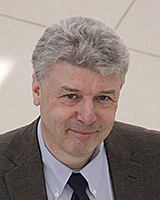 Michael Firsov graduated from Biophysical department of the Faculty of Physics and Mechanics of the Leningrad Polytechnic Institute in 1985 and completed PhD training in 1988 at post-grad school of I.M. Sechenov Institute of Evolutionary Physiology and Biochemistry of the Russian Academy of Sciences. Michael completed several postdoctoral trainings at University of Michigan, University of Boston Medical School, and Helsinki University of Technology (Aalto University) in 1990–2000. He worked as research scientist, then head of the lab, and since 2015 ― Director of Sechenov Institute. The main area of scientific interests ― sensory physiology, photoreception of vertebrates, study of the mechanisms of phototransduction of vertebrates. He was invited to Biological Communications in 2016 as Section Editor for Physiology.
Michael Firsov graduated from Biophysical department of the Faculty of Physics and Mechanics of the Leningrad Polytechnic Institute in 1985 and completed PhD training in 1988 at post-grad school of I.M. Sechenov Institute of Evolutionary Physiology and Biochemistry of the Russian Academy of Sciences. Michael completed several postdoctoral trainings at University of Michigan, University of Boston Medical School, and Helsinki University of Technology (Aalto University) in 1990–2000. He worked as research scientist, then head of the lab, and since 2015 ― Director of Sechenov Institute. The main area of scientific interests ― sensory physiology, photoreception of vertebrates, study of the mechanisms of phototransduction of vertebrates. He was invited to Biological Communications in 2016 as Section Editor for Physiology.
Dr. Alla I. Ignashchenkova
Research Associate, Abteilung Kognitive Neurologie, Universitatsklinikum Tubingen, Eberhard Karls Universitat Tubingen, Tubingen, Germany orcid.org/0000-0002-9444-5945
orcid.org/0000-0002-9444-5945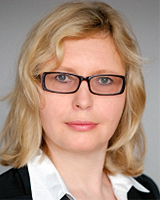 Alla Ignashchenkova is an Associate Editor handling the field of neuroscience. Alla obtained her PhD from the University of Tuebingen, Germany, studying neuronal mechanisms underlying covert shifts of attention in primates. With her postdoctoral work in the Peter Thier’s lab of Cognitive Neurology at the Hertie Institute for Clinical Brain Research in Tuebingen she continued investigating neuronal networks involved in redirecting visual attention. Later, as a research associate at the Center of Integrative Neuroscience in Tuebingen she studied the interaction between selective attention and eye movements. Her main findings are published in Current Biology, Nature Neuroscience, Journal of Neuroscience.
Alla Ignashchenkova is an Associate Editor handling the field of neuroscience. Alla obtained her PhD from the University of Tuebingen, Germany, studying neuronal mechanisms underlying covert shifts of attention in primates. With her postdoctoral work in the Peter Thier’s lab of Cognitive Neurology at the Hertie Institute for Clinical Brain Research in Tuebingen she continued investigating neuronal networks involved in redirecting visual attention. Later, as a research associate at the Center of Integrative Neuroscience in Tuebingen she studied the interaction between selective attention and eye movements. Her main findings are published in Current Biology, Nature Neuroscience, Journal of Neuroscience.
Prof. Cezary Kabala
Institute of Soil Science and Environmental Protection, Wroclaw University of Environmental and Life Sciences, Wroclaw, Poland orcid.org/0000-0001-9796-3716
orcid.org/0000-0001-9796-3716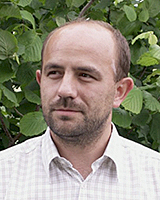 Cezary Kabala graduated from the Agricultural University of Wroclaw (Poland) in 1993 with initial specialization in soil and environmental sciences. Since 1993 he has been affiliated with the Institute of Soil Science and Environmental Protection of the Wroclaw University of Environmental and Life Sciences, where he is engaged in numerous projects at the interfaces between pedology, agriculture, forestry, geography, and archeology. His particular topics are the soil genesis in relation to environmental factors, soil taxonomy, soil contamination and remediation. He is a member of Committee for Agriculture of Polish Academy of Sciences, vice-president of Soil Science Society of Poland, and scientific boards of two national parks of SW Poland. He is an editorial board member of “Journal of Plant Nutrition and Soil Science” (since 2006), “Environmental Geochemistry and Health” (since 2011), “Catena” (since 2015), “Soil Science Annual” (since 2010); also served as guest editor in “Geoderma” (2016).
Cezary Kabala graduated from the Agricultural University of Wroclaw (Poland) in 1993 with initial specialization in soil and environmental sciences. Since 1993 he has been affiliated with the Institute of Soil Science and Environmental Protection of the Wroclaw University of Environmental and Life Sciences, where he is engaged in numerous projects at the interfaces between pedology, agriculture, forestry, geography, and archeology. His particular topics are the soil genesis in relation to environmental factors, soil taxonomy, soil contamination and remediation. He is a member of Committee for Agriculture of Polish Academy of Sciences, vice-president of Soil Science Society of Poland, and scientific boards of two national parks of SW Poland. He is an editorial board member of “Journal of Plant Nutrition and Soil Science” (since 2006), “Environmental Geochemistry and Health” (since 2011), “Catena” (since 2015), “Soil Science Annual” (since 2010); also served as guest editor in “Geoderma” (2016).
Dr. Dunja Knapp
Researcher at DFG-Center for Regenerative Therapies Dresden, Technische Universitat Dresden, Dresden, Germany orcid.org/0000-0002-7533-2208
orcid.org/0000-0002-7533-2208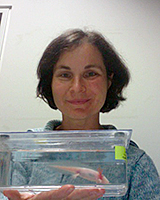 Dunja Knapp obtained the bachelor’s degree in Molecular Biology from the University of Zagreb, Croatia and PhD in Genetics from the University of Vienna, Austria where she studied regulation of cell cycle progression in the budding yeast Saccharomyces cerevisiae. After completing her PhD she moved to UK (first NIMR in London and then Wellcome Trust and Gurdon Institutes in Cambridge) where she worked towards understanding the early embryonic development using Xenopus as a model organism. Since 2005 she has been affiliated with Max Planck Institute of Molecular Cell Biology and Genetics and then with Center for Regenerative Therapies Dresden, Germany. Since that time the focus of her research has been to elucidate the cellular and molecular mechanisms of limb regeneration in the salamander Ambystoma mexicanum. Her main findings are published in Cell, Nature, Molecular and Cellular Biology, and PLOS One. She also contributed a chapter "Regeneration in Anamniotic Vertebrates" in the book Stem Cell Biology and Regenerative Medicine. Since 2013 Dunja has been an associate faculty member of F1000.
Dunja Knapp obtained the bachelor’s degree in Molecular Biology from the University of Zagreb, Croatia and PhD in Genetics from the University of Vienna, Austria where she studied regulation of cell cycle progression in the budding yeast Saccharomyces cerevisiae. After completing her PhD she moved to UK (first NIMR in London and then Wellcome Trust and Gurdon Institutes in Cambridge) where she worked towards understanding the early embryonic development using Xenopus as a model organism. Since 2005 she has been affiliated with Max Planck Institute of Molecular Cell Biology and Genetics and then with Center for Regenerative Therapies Dresden, Germany. Since that time the focus of her research has been to elucidate the cellular and molecular mechanisms of limb regeneration in the salamander Ambystoma mexicanum. Her main findings are published in Cell, Nature, Molecular and Cellular Biology, and PLOS One. She also contributed a chapter "Regeneration in Anamniotic Vertebrates" in the book Stem Cell Biology and Regenerative Medicine. Since 2013 Dunja has been an associate faculty member of F1000.
Prof. Dmitrii E. Korzhevskii
Head, Laboratory of Functional Morphology of the Central and Peripheral Neural System, Institute of Experimental Medicine, Saint Petersburg, Russia orcid.org/0000-0002-2456-8165
orcid.org/0000-0002-2456-8165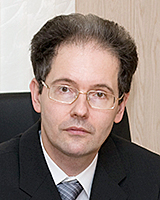 Dmitrii E. Korzhevskii graduated from Pavlov First Saint Petersburg State Medical University in 1988. In 2000, he defended his doctoral dissertation (MD) in cell biology, cytology and histology, and became a Professor of the Russian Academy of Sciences in 2014. Dr. Korzhevskii is a leading Russian morphologist of the central and peripheral nervous system. His research focuses on problems of neurogenesis and response of nerve and glial cells to damage. His scientific interests concern the elaboration and application of new morphological methods for the studies of structural features of the brain of laboratory animals and humans in ontogeny and pathology. He edited a number of books and manuals on applications of immunohistochemical methods, fluorescent and confocal microscopy to the study of relationships between structural elements in the brain. Dr. Korzhevskii is the author of over 400 peer reviewed articles and book chapters published in leading journals including the Neurochemical Journal, European Journal of Histochemistry, Biometals, Acta Naturae, Journal of Stroke and Cerebrovascular Diseases. For many years, Dmitrii Korzhevskii is a member of the editorial boards of journals “Morfologiia” and “Genes and Cells”, and since 2016 he is a Section Editor for neurobiology and developmental biology in Biological Communications.
Dmitrii E. Korzhevskii graduated from Pavlov First Saint Petersburg State Medical University in 1988. In 2000, he defended his doctoral dissertation (MD) in cell biology, cytology and histology, and became a Professor of the Russian Academy of Sciences in 2014. Dr. Korzhevskii is a leading Russian morphologist of the central and peripheral nervous system. His research focuses on problems of neurogenesis and response of nerve and glial cells to damage. His scientific interests concern the elaboration and application of new morphological methods for the studies of structural features of the brain of laboratory animals and humans in ontogeny and pathology. He edited a number of books and manuals on applications of immunohistochemical methods, fluorescent and confocal microscopy to the study of relationships between structural elements in the brain. Dr. Korzhevskii is the author of over 400 peer reviewed articles and book chapters published in leading journals including the Neurochemical Journal, European Journal of Histochemistry, Biometals, Acta Naturae, Journal of Stroke and Cerebrovascular Diseases. For many years, Dmitrii Korzhevskii is a member of the editorial boards of journals “Morfologiia” and “Genes and Cells”, and since 2016 he is a Section Editor for neurobiology and developmental biology in Biological Communications.
Dr. Mikhail A. Kostylev
Researcher, School of Medicine, Yale University New Haven, Connecticut, United States orcid.org/0000-0003-0435-8141
orcid.org/0000-0003-0435-8141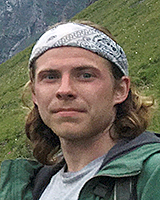 Mikhail Kostylev graduated from St. Petersburg State University in 2009, initially specializing in developmental biology. He then continued his education at Yale University working on the molecular mechanisms driving the neurotoxicity of the pathogenic protein aggregates in Alzheimer's disease. Mikhail obtained his PhD in cell biology from Yale in 2015 and continued his work there as a postdoctoral researcher at the department of neurology. He has broad interest in cellular and molecular neuroscience, with particular focus on the role that the molecular self-assembly, protein aggregation and biomolecular phase separation plays in regulating various aspects of cellular physiology and pathology. Mikhail's research has been published in a range of high-impact journals including Neuron, Journal of Biological Chemistry, Nature Neuroscience and Brain.
Mikhail Kostylev graduated from St. Petersburg State University in 2009, initially specializing in developmental biology. He then continued his education at Yale University working on the molecular mechanisms driving the neurotoxicity of the pathogenic protein aggregates in Alzheimer's disease. Mikhail obtained his PhD in cell biology from Yale in 2015 and continued his work there as a postdoctoral researcher at the department of neurology. He has broad interest in cellular and molecular neuroscience, with particular focus on the role that the molecular self-assembly, protein aggregation and biomolecular phase separation plays in regulating various aspects of cellular physiology and pathology. Mikhail's research has been published in a range of high-impact journals including Neuron, Journal of Biological Chemistry, Nature Neuroscience and Brain.
Dr. Anna B. Malashicheva
Head, Laboratory of Regenerative Biomedicine, Institute of Cytology, Russian Academy of Sciences, Saint Petersburg, Russia
Head, Laboratory of Molecular Cardiology, Almazov National Medical Research Centre, Saint Petersburg, Russia orcid.org/0000-0002-0820-2913
orcid.org/0000-0002-0820-2913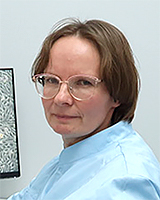 Anna Malashicheva graduated from the Faculty of Biology of Saint Petersburg State University in 1997 with initial specialization in embryology. Anna obtained her PhD degree at the Institute of Cytology of Russian Academy of Sciences in 2001 and after that then worked as a post-doc at Ecole Normale Superiere de Lyon, Lyon, France and at Max-Planck Institute of Immunology, Freiburg, Germany from 2001 to 2006. Then Anna returned to Saint-Petersburg and worked at the Institute of Cytology with Alexey Tomilin and in 2009 strated research at the Almazov National Medical Research Centre, where she became a head of the laboratory of Molecular Cardiology. In 2018 Anna became the head of an independent Laboratory of regenerative biomedicine at the Institute of Cytology RAS supported by the National project “Science”. In 2021 Anna got her degree of Doctor of Sciences. Her research interests include stem cells (including embryonic stem cells) in development and regeneration, heart development, Notch signaling pathway in heart development and osteogenesis, endothelial-to-mesenchymal transition and its role in the formation of blood vessels and heart, calcification of the heart and blood vessels, osteogenesis. She joined the journal in 2019.
Anna Malashicheva graduated from the Faculty of Biology of Saint Petersburg State University in 1997 with initial specialization in embryology. Anna obtained her PhD degree at the Institute of Cytology of Russian Academy of Sciences in 2001 and after that then worked as a post-doc at Ecole Normale Superiere de Lyon, Lyon, France and at Max-Planck Institute of Immunology, Freiburg, Germany from 2001 to 2006. Then Anna returned to Saint-Petersburg and worked at the Institute of Cytology with Alexey Tomilin and in 2009 strated research at the Almazov National Medical Research Centre, where she became a head of the laboratory of Molecular Cardiology. In 2018 Anna became the head of an independent Laboratory of regenerative biomedicine at the Institute of Cytology RAS supported by the National project “Science”. In 2021 Anna got her degree of Doctor of Sciences. Her research interests include stem cells (including embryonic stem cells) in development and regeneration, heart development, Notch signaling pathway in heart development and osteogenesis, endothelial-to-mesenchymal transition and its role in the formation of blood vessels and heart, calcification of the heart and blood vessels, osteogenesis. She joined the journal in 2019.
Prof. Stephen J. O’Brien
Scientific Director, Laboratory of Genomic Diversity, Center for Computer Technologies, ITMO University, Saint Petersburg, Russia orcid.org/0000-0001-7353-8301
orcid.org/0000-0001-7353-8301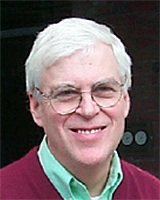 Dr. Stephen J. OBrien is a world leading molecular biologist and dedicated conservationist whom uses the tools of molecular biology to help protect endangered species and understand devastating diseases such as cancer and AIDS. He received his PhD in Genetics from Cornell University, USA in 1971. He then joined the prestigious National Cancer Institute, National Institutes of Health as a post-doc in 1971 and there, served as Founder and Chief of the Laboratory of Genomic Diversity from 1986–2012. In 2012, he founded the Theodosius Dobzhansky Center for Genome Bioinformatics, St. Petersburg State University and today serves as the Chief Scientific Officer; his dedication was honored in 2016 by his nomination and election to the Russian Academy of Sciences. In 2013 he was appointed Professor and Research Director at Nova Southeastern University in Ft Lauderdale, FL. Convinced of the utility of exploring diverse species to advance our understanding of the human genome, Dr. O’Brien and his team have assembled over 62,000 animal and 424,000 human tissue/DNA specimens, facilitating wide-ranging studies of disease gene associations, species adaptation and natural history. His research interests and expertise span human and comparative genomics, genetic epidemiology, AIDS, cancers, retro-virology, bioinformatics, biodiversity and species conservation. Dr. O’Brien is known for documenting the remarkable genetic uniformity of African cheetahs, resolving the mammalian tree of life, describing heretofore unrecognized species of orangutans, African forest elephants and Bornean clouded leopards. He is credited with the discovery and characterization of CCR5-∆32, the first of ~50 human AIDS restriction genes, which imparts natural immunity to HIV, leading to novel AIDS therapies. He is the one of the founders of the Genome 10K initiative, has published over 850 leading research papers, written multiple books and is adjunct professor in 12 international leading universities. He authored a popular book of science adventure stories — “Tears of the Cheetah” — which has been adopted by a few dozen USA universities as required reading for non-major science freshman. The Chinese translation of “Tears of the Cheetah” was ranked in the top ten science books in China for 2015. He is considered a “National Treasure” by many leading scientists in the US. He was invited to Biological Communications as Section Editor for comparative genomics, genetics and bioinformatics in 2014.
Dr. Stephen J. OBrien is a world leading molecular biologist and dedicated conservationist whom uses the tools of molecular biology to help protect endangered species and understand devastating diseases such as cancer and AIDS. He received his PhD in Genetics from Cornell University, USA in 1971. He then joined the prestigious National Cancer Institute, National Institutes of Health as a post-doc in 1971 and there, served as Founder and Chief of the Laboratory of Genomic Diversity from 1986–2012. In 2012, he founded the Theodosius Dobzhansky Center for Genome Bioinformatics, St. Petersburg State University and today serves as the Chief Scientific Officer; his dedication was honored in 2016 by his nomination and election to the Russian Academy of Sciences. In 2013 he was appointed Professor and Research Director at Nova Southeastern University in Ft Lauderdale, FL. Convinced of the utility of exploring diverse species to advance our understanding of the human genome, Dr. O’Brien and his team have assembled over 62,000 animal and 424,000 human tissue/DNA specimens, facilitating wide-ranging studies of disease gene associations, species adaptation and natural history. His research interests and expertise span human and comparative genomics, genetic epidemiology, AIDS, cancers, retro-virology, bioinformatics, biodiversity and species conservation. Dr. O’Brien is known for documenting the remarkable genetic uniformity of African cheetahs, resolving the mammalian tree of life, describing heretofore unrecognized species of orangutans, African forest elephants and Bornean clouded leopards. He is credited with the discovery and characterization of CCR5-∆32, the first of ~50 human AIDS restriction genes, which imparts natural immunity to HIV, leading to novel AIDS therapies. He is the one of the founders of the Genome 10K initiative, has published over 850 leading research papers, written multiple books and is adjunct professor in 12 international leading universities. He authored a popular book of science adventure stories — “Tears of the Cheetah” — which has been adopted by a few dozen USA universities as required reading for non-major science freshman. The Chinese translation of “Tears of the Cheetah” was ranked in the top ten science books in China for 2015. He is considered a “National Treasure” by many leading scientists in the US. He was invited to Biological Communications as Section Editor for comparative genomics, genetics and bioinformatics in 2014.
Prof. Vladimir G. Onipchenko
Head, Department of Geobotany, Faculty of Biology, Moscow Lomonosov State University, Moscow, Russia orcid.org/0000-0002-1626-1171
orcid.org/0000-0002-1626-1171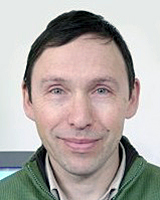 Vladimir Onipchenko graduated from the Faculty of Biology of Moscow State University in 1980. His scientific interests include general problems of plant ecology and alpine ecology especially. He has more than 300 publications including papers in Ecology Letters, Ecology, Functional Ecology, Journal of Ecology and Journal of Vegetation Science. Having a broad experience in plant science, alpine ecology and vegetation sciences, he has joined editorial boards of eight international and Russian journals, and now — in 2017 — Biological Communications, as section editor for Geobotany and Plant Ecology.
Vladimir Onipchenko graduated from the Faculty of Biology of Moscow State University in 1980. His scientific interests include general problems of plant ecology and alpine ecology especially. He has more than 300 publications including papers in Ecology Letters, Ecology, Functional Ecology, Journal of Ecology and Journal of Vegetation Science. Having a broad experience in plant science, alpine ecology and vegetation sciences, he has joined editorial boards of eight international and Russian journals, and now — in 2017 — Biological Communications, as section editor for Geobotany and Plant Ecology.
Dr. Andrey O. Plotnikov
Head, Resource Center “Persistence of Microorganisms”, Institute for Cellular and Intracellular Symbiosis, Ural Branch of the Russian Academy of Sciences, Orenburg, Russia
Associate Professor/Docent, Department of Hygiene and Epidemiology, Orenburg State Medical University, Orenburg, Russia orcid.org/0000-0001-6830-4068
orcid.org/0000-0001-6830-4068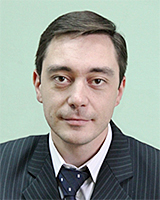 Andrey Plotnikov obtained his MD degree in 1999 at the Orenburg State Medical Academy, Orenburg, Russia and his PhD degree in the Department of Microbiology, Virology and Immunology at the same university in 2002. After completing his PhD thesis, he continued his research work in the Institute for Cellular and Intracellular Symbiosis, Ural Branch of the Russian Academy of Sciences, Orenburg, Russia as a researcher of the Laboratory of Water Microbiology. Since 2014 he is head of the newly founded Resource Center “Persistence of Microorganisms” which provides services in DNA high-throughput sequencing of pro- and eukaryotes. His scientific interests involve diversity, biology and ecology of water protists, especially Heterolobosea and Centrohelida groups; their symbiotic and associative relationships with prokaryotes, including pathogens and opportunists; phenomenon of pathogens survival in water ecosystems; genomics of pathogenic bacteria; and helmihth-bacterial interactions. He is a member of the International Society of Protistologists (ISOP). Andrey's research has been published in a range of international protistological journals, such as Protist, Journal of Eukaryotic Microbiology, Acta Protozoologica, Protistology.
Andrey Plotnikov obtained his MD degree in 1999 at the Orenburg State Medical Academy, Orenburg, Russia and his PhD degree in the Department of Microbiology, Virology and Immunology at the same university in 2002. After completing his PhD thesis, he continued his research work in the Institute for Cellular and Intracellular Symbiosis, Ural Branch of the Russian Academy of Sciences, Orenburg, Russia as a researcher of the Laboratory of Water Microbiology. Since 2014 he is head of the newly founded Resource Center “Persistence of Microorganisms” which provides services in DNA high-throughput sequencing of pro- and eukaryotes. His scientific interests involve diversity, biology and ecology of water protists, especially Heterolobosea and Centrohelida groups; their symbiotic and associative relationships with prokaryotes, including pathogens and opportunists; phenomenon of pathogens survival in water ecosystems; genomics of pathogenic bacteria; and helmihth-bacterial interactions. He is a member of the International Society of Protistologists (ISOP). Andrey's research has been published in a range of international protistological journals, such as Protist, Journal of Eukaryotic Microbiology, Acta Protozoologica, Protistology.
Dr. Maxim V. Vinarski
Head, Laboratory of Macroecology and Biogeography of Invertebrates, Saint Petersburg State University, Saint Petersburg, Russia orcid.org/0000-0002-7644-4164
orcid.org/0000-0002-7644-4164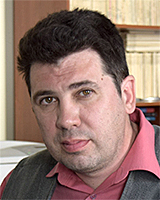 Maxim Vinarski graduated from the Faculty of Biology of the Omsk State Pedagogical University in 2000. He obtained his PhD degree from the Tomsk State University in 2003 and his Doctor of Science (zoology) degree from the same University in 2014. Since 2016, he works at the Saint-Petersburg State University holding the position of professor, head of Laboratory for Macroecology and Biogeography of invertebrates. His scientific interests cover a range of themes, including taxonomy, phylogeny, ecology, and biogeography of freshwater snails (Gastropoda), host-parasite relationships between small mammals and their ectoparasites, as well as some problems of theoretical taxonomy and history of biological systematics and invertebrate zoology. Maxim’s current activities also include popular science writing. Maxim Vinarski participated in more than 50 fieldworks in regions ranging from Greenland to Uganda in the north-south direction, and from Ontario to the Kurile Islands in the west-east direction. In 2021, he joined Biological Communications as an Associate Editor for invertebrate zoology.
Maxim Vinarski graduated from the Faculty of Biology of the Omsk State Pedagogical University in 2000. He obtained his PhD degree from the Tomsk State University in 2003 and his Doctor of Science (zoology) degree from the same University in 2014. Since 2016, he works at the Saint-Petersburg State University holding the position of professor, head of Laboratory for Macroecology and Biogeography of invertebrates. His scientific interests cover a range of themes, including taxonomy, phylogeny, ecology, and biogeography of freshwater snails (Gastropoda), host-parasite relationships between small mammals and their ectoparasites, as well as some problems of theoretical taxonomy and history of biological systematics and invertebrate zoology. Maxim’s current activities also include popular science writing. Maxim Vinarski participated in more than 50 fieldworks in regions ranging from Greenland to Uganda in the north-south direction, and from Ontario to the Kurile Islands in the west-east direction. In 2021, he joined Biological Communications as an Associate Editor for invertebrate zoology.
Dr. Nikita V. Zelenkov
Head, Cabineth of Palaeoornithology, Borissiak Palaeontological Institute, Russian Academy of Sciences, Moscow, Russia orcid.org/0000-0003-4367-0402
orcid.org/0000-0003-4367-0402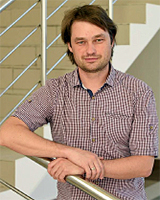 Nikita Zelenkov graduated from the Faculty of Biology of Lomonosov Moscow State University in 2005. Since 2004, he has been affiliated with the Paleontological Institute of the Russian Academy of Sciences in Moscow, where he is now heading the Cabineth of Paleornithology. The subject area includes systematics, evolution, phylogeny and functional morphology of fossil and modern birds. Nikita is an author or a co-author of dozens of papers in international peer-reviewed journals, including Biology Letters of the Royal Society, Royal Society Open Science, Journal of Systematic Palaeontology, Journal of Vertebrate Paleontology, Journal of Ornithology. He is also the winner of a Hans Rausing Prize for the best publication in paleontology (2015). Since 2008 he has been serving as the scientific editor of Paleontological Journal (Moscow) and joined Biological Communications as an Associate Editor for palaentology in 2016. Photo is granted by Oleg Belyalov.
Nikita Zelenkov graduated from the Faculty of Biology of Lomonosov Moscow State University in 2005. Since 2004, he has been affiliated with the Paleontological Institute of the Russian Academy of Sciences in Moscow, where he is now heading the Cabineth of Paleornithology. The subject area includes systematics, evolution, phylogeny and functional morphology of fossil and modern birds. Nikita is an author or a co-author of dozens of papers in international peer-reviewed journals, including Biology Letters of the Royal Society, Royal Society Open Science, Journal of Systematic Palaeontology, Journal of Vertebrate Paleontology, Journal of Ornithology. He is also the winner of a Hans Rausing Prize for the best publication in paleontology (2015). Since 2008 he has been serving as the scientific editor of Paleontological Journal (Moscow) and joined Biological Communications as an Associate Editor for palaentology in 2016. Photo is granted by Oleg Belyalov.
Are you interested in working on the Editorial Board? Biological Communications welcomes volunteers who share our mission, values, and commitment to providing our contributors with high-quality experience. Please, send your CV via e-mail: biocomm@spbu.ru




